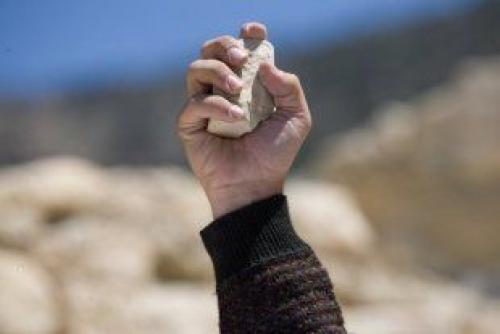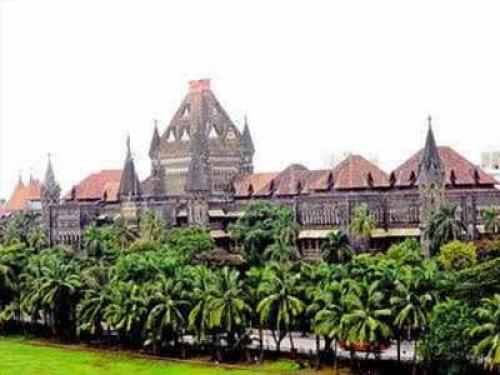government: semi-presidential republic
state of civil and political rights: Free
constitution: 12 January 1992
legal system: based on French law and local customs
legislative system: Unicameral National Assembly
judicial system: Supreme Court, High court of Justice, Court of Appeal
religion: Muslim 90%, Christian 1%, indigenous beliefs 9%
death row: +63 (end 2017, Amnesty International)
year of last executions: 21-8-1980
death sentences: 10
executions: 0
international treaties on human rights and the death penalty:International Covenant on Civil and Political Rights
1st Optional Protocol to the Covenant
Convention on the Rights of the Child
Convention Against Torture and Other Cruel, Inhuman or Degrading Treatment or Punishment
Statute of the International Criminal Court (which excludes the death penalty)
situation:
Death
sentences are given in Mali
for serious crimes such as assassinations, terrorism, aggravated robbery,
kidnapping, betrayals, sedition, spying, arsons and destruction with explosives
of public buildings, plots against the state and embezzlement of public funds
whose amount is equal to or more than 10 million CFA francs.
Following
the fall of the 23-year dictatorship of General Moussa Traore in 1991, the
first democratically-elected president, Alpha Oumar Konarè, immediately
expressed himself in favour of the abolition of the death penalty. On December
10, 1997 to mark the international human rights day, he commuted all death
sentences to life imprisonment.
On
May 16, 2002 Konare’s government, practically at the end of its legislature,
introduced a two-year suspension of executions. It said the provision was
expected to provide the opportunity to discuss the maintenance or abolition of
the death penalty.
On
May 29, 2002 President Konare, nine days before leaving office, announced a
pardon for former military ruler Moussa Traore, who had been sentenced to death
in 1993 for the murder of over 150 pro-democracy protesters, though his
sentence had later been commuted to life imprisonment. The release of the
former dictator was one of the election promises of Amadou Toumani Tourè, the
former general who is widely-credited with toppling Moussa’s military
dictatorship and introducing democracy. Toure was elected president in April
2002 and took office on June 8, 2002.
On
22 September 2007, during his address to the Nation on the 47th anniversary of
independence, President Amadou Toumani Touré, re-elected in April 2007, swore
to quickly bring an end to the death penalty in his Country.
In
fact, on 17 October 2007, the Mali
government adopted a bill replacing the death penalty with life imprisonment.
In a statement issued at the end of a cabinet meeting, the Government said “The
abolition of the death penalty is a sign of respect for life which conforms to
sacred values of humanity, clemency, compassion and forgiveness which are part
of our society.”
The
new bill to abolish the death penalty in Mali sparked hot debate in the
National Assembly amid protests from Islamic groups who said abolishing it went
against Islamic principles. On 11 June 2008, Boubacar Camara, an Imam and a
member of the High Islamic Council of Mali (HCIM), said the Council “refuses to
endorse a legal decision that is fundamentally opposed to what God and His
Prophet have decreed.” “The death penalty is defined in Islam as a legitimate
act of retaliation, as enacted by God in the Koran,” he added. “According to
the Koran it allows one to preserve human life and social stability. Its
abolition would open the way to widespread insecurity, anarchy, and general
social instability.”
On
10 November 2010, regarding the current impasse on the parliamentary procedure
of the proposed law, Justice Minister Maharafa Traore said he already
considered “a success the fact that it wasn’t withdrawn but was kept in the Parliamentary
Assembly’s orders of the day.” However, the Government would go forward in the
process towards the abolition of the death penalty in Mali, he said.
On
21 December 2010, Mali
co-sponsored and voted in favour of the Resolution on a Moratorium on the Use
of the Death Penalty at the UN General Assembly.
On
15 December 2011, President Touré pardoned Bechir Sinoun, a Tunisian national
sentenced to death for attacking the French embassy on 5 January 2011. The
decision was made after Tunisia’s
President, Moncef Marzouki, called upon the Malian government to return Sinoun
to Tunisia.
In
December 2011, the draft bill to abolish the death penalty was again postponed
by the National Assembly.
In
January 2012, an armed conflict broke out in northern Mali, which
Tuareg rebels took control of by April and declared the secession of a new
state, Azawad. The conflict was complicated by a military coup that took place
in March and overthrew the government, and later fighting between Tuareg and
Islamist rebels. However, heavy international pressure has forced coup leaders
to accelerate the transition back to democratic rule and, to that end,
Dioncounda Traore was installed as interim President on 12 April. Presidential elections
(held in July-August 2013) and legislative elections (held in two rounds in
November and December 2013) appeared to put an end to the instability in the
country.
On
2 October 2012, Islamists who have seized control of northern Mali publicly executed a man accused of murder,
witnesses told Agence France Presse by phone from the city
of Timbuktu.
The man – Moussa Agh Mohammed – was executed by firing squad at around 5:30 pm
in a space between two municipal buildings in the ancient city, witnesses said.
"I saw him fall after the shots were fired," one witness said. A city
council member who also saw the execution confirmed the report and said a crowd
of some 100 people had attended. A third witness, who identified himself as
Bamoussa, said the executed man was accused of killing a fisherman and was a
member of the ethnic Tuareg rebel group, the National Movement for the
Liberation of Azawad (MNLA). The victim’s family came to Mohammed’s execution,
and before he was put to death, they were asked if they would forgive him for
his crime. It was explained that in exchange, Mohammed’s family would be forced
to compensate them for the death of their son. The victim’s mother said that
she could not forgive Mohammed. The MNLA was formerly an ally of the Islamist
groups that have seized control of the north. But the Islamists have since
turned on the secular separatist group and chased its members out of cities
under their control.
The
last legal executions held in Mali
were on 21 August 1980 when Mamadou Keita and Karuba Coulibaly, both condemned
of murder and armed robbery in 1980, were shot to death. Since then all death
sentences have been commuted to life imprisonment by presidential pardon.
At
least 7 death sentences were handed down in 2013, all for murder, according to
Amnesty International. There were at least 10 death sentences in 2012, at least
2 in
2011, and at least 14 in
2010.
On
22 January 2013, Mali
was reviewed under the Universal Periodic Review of the UN Human Rights Council.
Regarding the death penalty, the country delegation said that no law had been
adopted for its abolition yet, even if a draft bill was before the National
Assembly since 2008. The delegation added that a de facto moratorium has been in
place since the 1980s and all death sentences are automatically commuted to
life imprisonment.
On
December 19, 2016, Mali
voted in favour of the Resolution on a Moratorium on the Use
of the Death Penalty at the UN General Assembly. It did the same in 2008, 2010
and 2012. However, in 2016 Mali di not co-sponsored the text.









